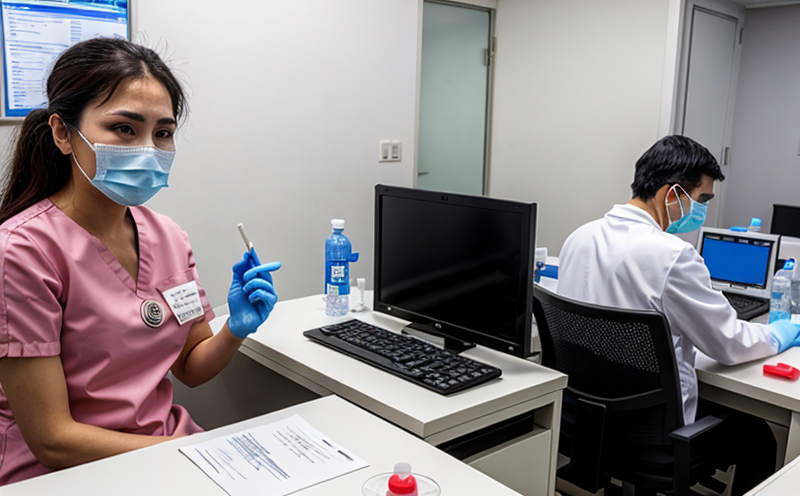Tilapia Lake Virus (TiLV) PCR and Serology Testing
The Tilapia Lake Virus (TiLV) is a significant threat to tilapia aquaculture worldwide. TiLV is an emerging disease that can cause severe mortality in affected fish populations, leading to substantial economic losses for farmers and industries. Early detection and accurate diagnosis are crucial for managing this viral infection effectively.
Our laboratory offers PCR and serology testing services specifically designed to identify the presence of TiLV in tilapia samples. These tests help in monitoring the health status of your aquaculture operations, ensuring that you can take timely actions to prevent outbreaks and mitigate risks associated with this virus.
The PCR test detects the genetic material (DNA or RNA) of TiLV using polymerase chain reaction technology. This method provides highly sensitive results capable of identifying even trace amounts of viral nucleic acids. The serology test, on the other hand, measures antibodies against TiLV in blood serum samples, indicating past or current exposure to the virus.
The testing process begins with proper sample collection from affected fish populations. Specimens should be collected according to strict guidelines provided by our laboratory team to ensure accurate results. After sampling, the specimens are transported under optimal conditions to prevent any degradation of the biological material.
Our state-of-the-art laboratories employ advanced instrumentation and methodologies that comply with international standards such as ISO 15189 and ASTM E2347. These standards ensure high-quality testing procedures and reliable results. Our team of experienced virologists and microbiologists uses these tools to analyze the collected samples meticulously.
The PCR test typically takes around 48 hours from sample receipt, while the serology test usually requires about 72 hours for complete analysis. Once completed, our laboratory issues detailed reports that include raw data, interpretation of results, and recommendations for further action based on the findings. These reports are essential for making informed decisions regarding your aquaculture management practices.
By utilizing these diagnostic services, you can proactively manage TiLV in your tilapia populations, thereby protecting both your investment and public health. Regular testing helps maintain biosecurity measures by identifying potential threats early, allowing for prompt intervention strategies to be implemented.
Applied Standards
The PCR and serology tests we perform adhere strictly to relevant international standards that ensure accuracy and reliability of our results. For the PCR test, we follow ISO 15189:2012, which sets forth requirements for quality and competence in medical laboratories. This standard ensures that our laboratory maintains high standards throughout all stages of testing.
For serology tests, compliance with ASTM E2347-18 is crucial as it specifies procedures for determining antibody concentrations against specific antigens like those found in TiLV. Following these guidelines guarantees consistent and accurate measurement of antibodies present in the tested samples.
Both methods also incorporate elements from OIE (World Organization for Animal Health) recommendations which are widely accepted globally to standardize diagnostic tests across different countries and regions. By adhering to these standards, we provide you with confidence that our results are comparable and internationally recognized.
Benefits
- Early Detection: Enables prompt identification of TiLV presence in tilapia populations.
- Precision Diagnosis: Provides clear evidence of viral activity through molecular detection techniques.
- Preventive Measures: Allows for targeted interventions to control the spread of the virus within aquaculture facilities.
- Economic Protection: Minimizes financial losses due to unexpected outbreaks by providing actionable insights early in the disease cycle.
In addition, our comprehensive testing services offer peace of mind knowing that you are taking proactive steps towards maintaining healthy fish stocks and sustainable aquaculture practices. Our expert team works closely with clients to develop tailored solutions that meet individual needs within broader industry standards.
International Acceptance and Recognition
- Widely Accepted: Results from our PCR and serology tests are recognized by numerous regulatory bodies and international organizations involved in aquaculture and veterinary health sectors.
- Cross-border Validity: Our findings can be used across borders without the need for additional validation, facilitating smoother trade activities between countries.
Our laboratory adheres strictly to globally accepted protocols ensuring that our tests meet or exceed the expectations set by these authorities. This recognition enhances your credibility as an industry leader and facilitates compliance with international regulations governing aquatic animal health.





